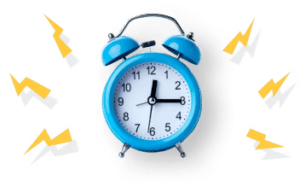Name
Capella University
NURS-FPX6103: The Nurse Educator Role
Instructor’s Name
October, 2024
Table of Contents
ToggleNurse Educator Philosophy Statement
The philosophy statement helps a nurse educator who is also a faculty member to provide nursing care on campus as well as clinical sites. It underlines important aspects which include scholarship, service, teaching, and learning facing the mission of nursing education. It also defines how quality education can be delivered and how the institution is willing to develop student success and professional; maturity (Campbell et al. 2019). Furthermore, it applies the core competencies of nurse educators to detail how those competencies inform and guide approaches to teaching, volunteering, and scholarly pursuits to equip students for success in continuously metamorphosing healthcare environments. Finally, it leads to the promotion of lifelong learning and professionalism together with leadership in the nursing profession.
Formulating an Informed Nurse Educator Philosophy Statement
The core of my rationale for becoming a nurse educator is based on the concept of promoting the professional development of nursing students and students’ clinical performance. This philosophy is based on adult learning theory, in which the learner is the person who receives knowledge and can learn from their own experiences (Tembo, 2024). I aim to produce effective learning-teaching processes that would contribute not only to knowledge acquisition but also to knowledge application, specifically to clinical decision-making processes. These skills apply to nursing practice to the extent that when students are in a position to evaluate the different aspects of a client’s case and make a decision, they will be able to provide the best care to the clients.
To this end, constructivism and experiential learning theories form the basis of my effective teaching pedagogy. According to the constructivist learning theory, learners construct new knowledge based on something they already possess (Dean et al., 2020). This is in parallel to nursing where the student initially uses past experiences and course learning to make clinical choices. The type of learning that is associated with experiential learning is particularly important for nursing.
Through practice placements, students practice what they have learned in the classroom and can thus be more equipped with skills gained through practice as well as confidence gained through practice placements (Dean et al., 2020). However, they have to be mixed with a belief on how to effectively approach cultural competency in the classroom. For nursing education to work for students from diverse backgrounds, there is a need to foster an environment of dignity and respect. This facilitates the fulfillment of the four principles ofBatibo’s social justice and equity with a special emphasis on all the students. If nurse educators learn about students and accept their multicultural backgrounds, they would also be enabling a more binocular understanding of the different viewpoints of a multicultural society in the society and among the patients they encounter.
Applying the Nurse Educator Philosophy to the Tripartite Roles of Teaching
Teaching
My philosophy is constructed on student-centeredness based on principles of adult learning. My instructional and curational goals include striving for a stimulating participative process of education that focuses on the learners’ learning (Turale et al., 2020). Teaching approaches that I integrate include the use of simulation, case, and experiential teachings to help inculcate critical thinking and practical skills in my learners.
Scholarship
As a nurse educator, I engage in research activities, more specifically, on issues related to nursing education including the use of instructional methods, course outlining, and assessment (Turale et al., 2020). My greatest contributions are in presenting the results of my work in written papers for scholarly journals and conference presentations to share proactive knowledge and skills for the improvement of nursing education.
Service
Service is another aspect of my philosophy which I consider important for my work. To the big nursing profession, healthcare facilities, and society, I wish to make my impact by engaging in active membership in professional bodies, enhancing the quality of patient’s care, and embracing community engagement responsibilities (Saab et al., 2021). This is a commitment that assists in the defence of the nursing profession and also struggles for the achievement of high-quality education on nursing.
Analyzing the Influence of Historical Events on the Nurse Educator’s Role
The Establishment of Formal Nursing Education
The process of shifting from an apprenticeship system to a structured nursing education system was initiated by the establishment of the Nightingale Training School for Nurses in 1860. This school gradually initiated structured nursing programs that introduced the integration of knowledge and practice (Choi et al., 2024). Nurse educators today still practice this model because they still cover the knowledge aspect as well as the skills in nursing. The formal education of nurses has helped to professionalize the profession because the teacher of nursing has to organize a curriculum and make sure that he or she keeps up with the required standards of education while at the same time teaching what patients require and the scientific knowledge which is necessary for the delivery of necessary care.
The Influence of Technological Advancements in Healthcare
Modern technologies have impacted so much on the processes of delivering education resulting in increased changes in the field of nursing education. The current models of nursing education use features like e-records, telemedicine, and simulated scenarios in preparing students for current practice settings as they were last observed by Lemetti et al (2023). Nurse educators essentially need to keep abreast with these technologies and must incorporate these into their teaching-learning tools. Moreover, such a shift enhances student competency with new instruments to fill the gap between the clinical approach in traditional health care and the application of technology in contemporary settings.
The COVID-19 Pandemic and the Shift to Distance Learning
The societal impact of the COVID-19 pandemic had significant implications for the delivery of nursing education, thereby compelling educators to embrace distance learning models forcibly. Online and distance education technologies, virtual training, and e-learning tools were also valuable in enabling the learning process during the lockdowns and general limitations to contact (Sihvola et al., 2022). Nurse educators further had to change the way they taught their professed fields into virtual methods while at the same time striving to achieve educational quality and clinical practice replication for the students. Such change emphasized the values of adaptability, creativity, and, most importantly, the performability of teaching in face-to-face and online settings. Since then, distance learning has become permanent in the nursing education programs that created new opportunities in terms of accessibility and elasticity.
Analyzing Competencies Necessary for Nurse Educator Role
Clinical Expertise and Curriculum Development
Nurse educators should have adequate clinical experience to facilitate the contents and explain to students how to implement theories learned in nursing practice areas. Such knowledge enables educators to offer realistic knowledge and guide learners on how to provide safe and quality patient care (Turale et al., 2021). Further, they are expected to make and update a curriculum that meets the trend in the market and the accreditation bodies. In other words, this helps keep abreast of students’ education needs so that the students get an education that prepares them for problems of practice in modern nursing careers.
Instructional Design and Student Assessment
Learning must therefore be carefully designed to ensure that it aligns with the desired instructional goals and objectives. Nurse educators also employ different ways of teaching, which include simulation, case-based teaching, and other techniques that must enable students to practice what has been taught in clinical settings (McElroy et al., 2021). With this, they have to also evaluate student learning by employing various measures such as tests, clinical performance tests, and reflection assessments. These assessments allow giving constructive feedback based on them to the students, which will enhance their awareness about their progression and further improvements towards competent professionals.
Communication and Ongoing Professional Development
Learning must therefore be carefully designed to ensure that it aligns with the desired instructional goals and objectives. Nurse educators also employ different ways of teaching, which include simulation, case-based teaching, and other techniques that must enable students to practice what has been taught in clinical settings (McElroy et al., 2021). With this, they have to also evaluate student learning by employing various measures such as tests, clinical performance tests, and reflection assessments. These assessments allow giving constructive feedback based on them to the students, which will enhance their awareness about their progression and further improvements towards competent professionals.
NURS FPX 6103 Assessment 3 Conclusion
An effective nurse educator philosophy is evident in developing an appropriate approach to professional practice and growth as well as being mandatory in the development of nursing education. According to Greenway & Acai (2024), it means that when the ten essential competencies have been embraced, and they are put on par with the three facets of teaching, scholarship, and service, nurse educators, in particular, will be in a position to contribute to the profession positively. It is equally evident that the implementation of a clear philosophy also fosters individual development, trains the next generation of nurses as well as progresses nursing education.
NURS FPX 6103 Assessment 3 References
Aase, I., Akerjordet, K., Crookes, P., Frøiland, C. T., & Laugaland, K. A. (2022). Exploring the formal assessment discussions in clinical nursing education: An observational study. BMC Nursing, 21(1), 155. https://doi.org/10.1186/s12912-022-00934-x
Choi, J., Tarte, V., Bove, L. A., & Kim-Godwin, Y. (2024). Nursing informatics competencies of graduate nurse educator students: Descriptive study. Studies in Health Technology and Informatics, 315, 99–103. https://doi.org/10.3233/SHTI240114
Campbell, K. L., Winters-Stone, K. M., Wiskemann, J., May, A. M., Schwartz, A. L., Courneya, K. S., Zucker, D. S., Matthews, C. E., Ligibel, J. A., Gerber, L. H., Morris, G. S., Patel, A. V., Hue, T. F., Perna, F. M., & Schmitz, K. H. (2019). Exercise guidelines for cancer survivors: A consensus statement from the international multidisciplinary roundtable. Medicine and Science in Sports and Exercise, 51(11), 2375–2390. https://doi.org/10.1249/MSS.0000000000002116
Dean, S., Halpern, J., McAllister, M., & Lazenby, M. (2020). Nursing education, virtual reality, and empathy? Nursing Open, 7(6), 2056–2059. https://doi.org/10.1002/nop2.551
Greenway, M., & Acai, A. (2024). Academic leadership in nursing: A concept analysis. Nurse Education Today, 141, 106338. https://doi.org/10.1016/j.nedt.2024.106338
Lemetti, T., Pakarinen, A., Salminen, L., Virtanen, H., & Haapa, T. (2023). Instruments assessing nurse educator’s competence: A scoping review. Nursing Open, 10(4), 1985–2002. https://doi.org/10.1002/nop2.1479
McElroy, K. G., Gilden, R., & Sattler, B. (2021). Environmental health nursing education: One school’s journey. Public Health Nursing (Boston, Mass.), 38(2), 258–265. https://doi.org/10.1111/phn.12815
Sihvola, S., Kvist, T., & Nurmeksela, A. (2022). Nurse leaders’ resilience and their role in supporting nurses’ resilience during the COVID-19 pandemic: A scoping review. Journal of Nursing Management, 30(6), 1869–1880. https://doi.org/10.1111/jonm.13640
Saab, M. M., Hegarty, J., Murphy, D., & Landers, M. (2021). Incorporating virtual reality in nurse education: A qualitative study of nursing students’ perspectives. Nurse Education Today, 105, 105045. https://doi.org/10.1016/j.nedt.2021.105045
Tembo A. C. (2024). The place of philosophy in nursing. Nursing Philosophy: An International Journal for Healthcare Professionals, 25(1), e12473. https://doi.org/10.1111/nup.12473
Turale, S., Meechamnan, C., & Kunaviktikul, W. (2020). Challenging times: ethics, nursing, and the COVID-19 pandemic. International Nursing Review, 67(2), 164–167. https://doi.org/10.1111/inr.12598
Turale, S., & Nantsupawat, A. (2021). Clinician mental health, nursing shortages, and the COVID-19 pandemic: Crises within crises. International Nursing Review, 68(1), 12–14. https://doi.org/10.1111/inr.12674








